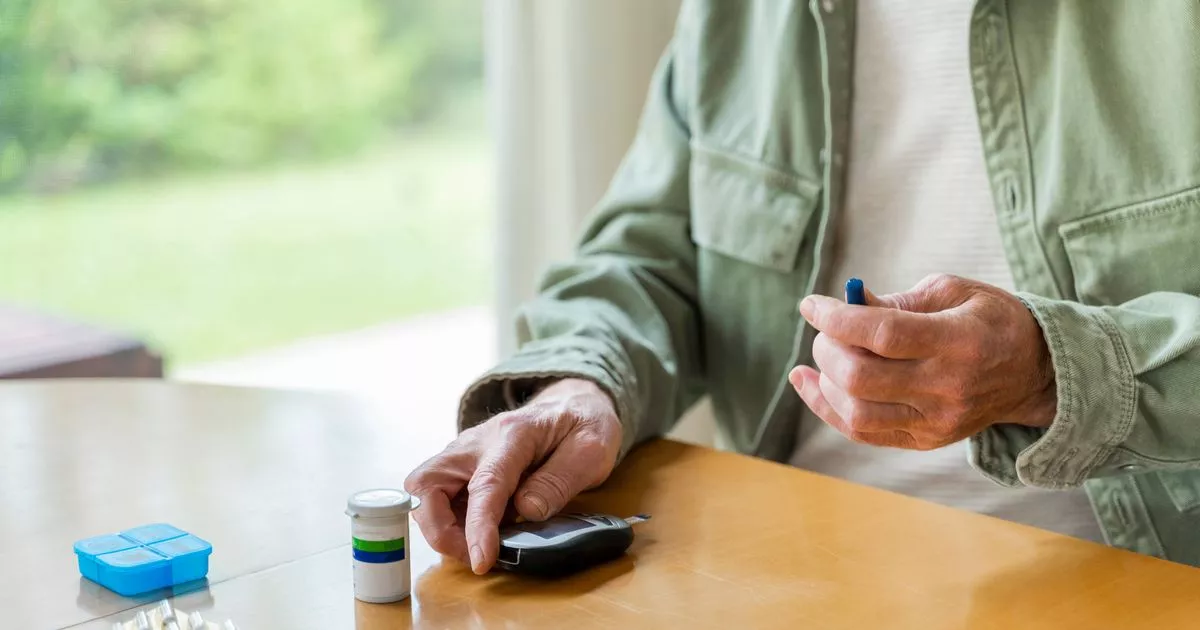The Medicines and Healthcare products Regulatory Agency (MHRA) has warned that the heatwave could impact the efficacy of some medications, as well as alter how the body responds to certain prescribed treatments.
Lucy Farrell and Hanna Geissler
16:51, 11 Jul 2025
 People on specific medicines have been given important advice(Image: Getty Images)
People on specific medicines have been given important advice(Image: Getty Images)
People taking commonly-prescribed drugs for ailments such as hypertension, asthma, and diabetes are being warned to store their medications properly as Britain’s scorching weather continues into the weekend.
The Medicines and Healthcare products Regulatory Agency (MHRA) has issued guidance that soaring temperatures can affect medicines and how well they work, whilst sweltering conditions can also change how the body responds to certain prescribed drugs.
Mercury levels are expected to climb this weekend throughout Britain, with several warnings issued across southern regions for extreme heat, and Scotland is also braced for weekend temperatures to spike, albeit less dramatically. Therefore, all those across the nation managing these medical conditions must ensure they’re maintaining their medicines under appropriate circumstances.
Dr Alison Cave, the MHRA’s chief safety officer, explained: “Let’s face it – when there’s a heatwave, most of us are focused on getting outside and enjoying it while it lasts.
“But it’s easy to forget that medicines left in the heat – in cars, bags, or on sunny windowsills – might not work properly when you need them.”, reports the Daily Record.
“Some medicines can also make you more likely to burn in the sun, feel dizzy, or get dehydrated, especially if you’re taking diuretics or have a condition like asthma, heart disease, or diabetes.”
To remain safe during the hot spell, Dr Cave provided three essential recommendations. Initially, treatments should be kept in cool, dry places away from direct sunlight.
Since most medicines must be stored below 25C whilst others require chilled conditions, it remains essential to examine labels and packaging for proper storage guidance. Excessive temperatures can lead to the breakdown of active components in treatments including tablets, inhalers, hormone patches, insulin, and EpiPens.
Should medications alter in colour, emit an odd odour, change in consistency or look different from normal, these may signal heat-related damage and warrant consultation with a pharmacist, according to the Express.
The second recommendation involves recognising signs of heat-related ailments, maintaining proper hydration, and listening to your body’s signals.
Throughout warm spells, your system loses additional moisture via sweating, with certain treatments potentially worsening this process or compromising your body’s heat management capabilities.
Those taking diuretics, commonly known as “water tablets” such as furosemide, face heightened risk as they already experience greater fluid loss through urination, potentially leading to dehydration or electrolyte disturbances.
Blood pressure medicines including ACE inhibitors, beta-blockers, or calcium channel blockers may similarly compromise your body’s temperature regulation abilities, especially during sudden heatwave conditions.
Additionally, certain diabetes medications, encompassing insulin and metformin, can increase dehydration risks or mask early warning symptoms. Should you start to feel unwell from the heat, Dr Cave advises moving to a more temperate location, sipping water gradually, and contacting medical professionals if your symptoms fail to improve swiftly.
Finally, Dr Cave proposes verifying whether your prescribed treatments heighten your skin’s vulnerability to sun damage, even in gentle sunlight conditions.
Various medications, including antibiotics, diuretics, antidepressants, and therapies for dermatological conditions like acne or eczema, may trigger increased photosensitivity. Furthermore, extended use of pain relief tablets such as ibuprofen or naproxen could sometimes produce minor sun sensitivity reactions.
Treatments like methotrexate, prescribed for ailments including rheumatoid arthritis, psoriasis, Crohn’s disease, and cancer, can prompt serious photosensitivity responses even with minimal dosages.
Serious adverse effects may present as excruciating skin eruptions, blisters, or inflammation and could sometimes progress to hazardous infections in exceptional cases. Dr Cave advised: “Remember, for all medicines it’s important to read the leaflet and speak to a healthcare professional if you have any questions.”
